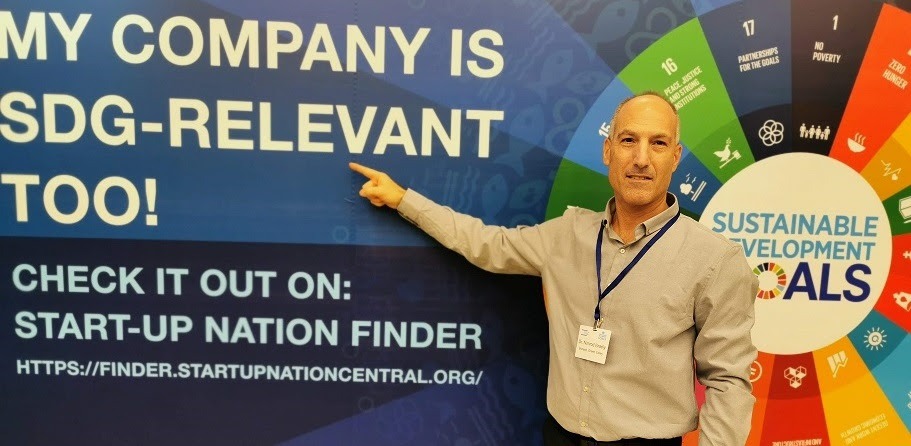WHY SHOULD EMERGING ECONOMIES CARE ABOUT “VALUES” AND “SPIRIT” OF THE MIDDLE CLASS?

BY DR. NIMROD
I often hear people saying that Africa, India, and other developing economies have no chance of catching up with developed economies in the foreseeable future. This is a mistake that stems from a lack of information.
Nothing can stop a nation that its people are determined to change its course. I am not talking about politicians’ high talks, but rather about the free from pretense and poses true Spirit of the people.
That elusive Spirit hovers in and among the people. No one can see it, but it is very much present, affecting the people’s behavior, activities, and, ultimately, the nation’s direction.
Precisely for that reason, I am sure that many countries, considered as “emerging economies,” will thrive and make fast economic progress in the coming years. Not all countries, not at the same pace, but some will progress fast.
The same unshakable Spirit of the people that shapes countries’ future is shaping global agenda, and just the same; it is unshakable.
The same unshakable Spirit of the people that shape and predict nations’ future is the one shaping the global agenda.
By understanding this elusive Spirit of the people, we can predict the future outcome with high certainty and accuracy.
The UN SDG (Sustainable Development Goals) is the result of that Spirit. It revolves around three main themes, Health, Environment, and Social responsibility.
What is the right thing to do regarding that Spirit; resist it, ignore it, join and be a part of it, and maybe even lead it?
THE MIDDLE CLASS
According to the EU Commission, “The size of the global middle class increased… to about 3.5 billion people in 2017 — more than half of the world population.” [>><<]
In simple words, it means that if you want to bring a positive change to your country, you need to understand the Spirit of the Global Middle Class.
Emerging economies that wish to develop their economy as fast as China should pay close attention to that Spirit understand it to use and benefit from it.
The “Global Middle Class” shares common views on many topics and issues, to the point that we can almost relate to it as an entity with its wishes and demands, practically a “super nation.”
An excellent example of the “common view” is what we may refer to as Global Values; Health, Environment, and Social responsibility (i.e., SDG).
NO ONE CAN IGNORE THE SPIRIT
Looking at the former President of the USA, Donald Trump, we see that no matter how powerful you are, even the USA President will pay dearly for the denials of global values representing the Spirit of the people (i.e., the Spirit of the middle class).
Not understanding this is a costly mistake. In contrast, understanding and responding to the Spirit of the people hold the most incredible business opportunities for emerging economies.
Unlike people that live in poverty, the middle class holds influential positions. They have substantial financial and political resources to finance and pay for changes that it finds fit and resonate with its values and agenda.
Hence, making the middle class feel better about itself and making this world a better place is critical for any country’s economic success. This is even more critical to emerging economies since many of those “required changes” concern them.
WHERE DOES OPPORTUNITY LAY?
The Global Middle Class is very dedicated, conscience, and persistent about its core global values.
Is this trend transient?
Is it good and right to ignore this trend?
We can mark this trend to the Hippies in the ’60s of the 20th Century. It grew with the rise of Green Peace, and since the ’80s, it became part of the establishment and the global agenda.
In short, it is here to stay. We can expect that the requirements, demands, expectations, laws, and regulations related to these issues will be overcome and intensified.
Meanwhile, some countries believe they can avoid or dismiss those values and Spirit. They think that by “avoiding” the problem, it will go away or maybe disappear. Other countries believe they can fight against the Spirit and win.
Allow me to share a secret with you; no country, no president or leader can avoid or win a war against that Spirit and the Values it represents.
Instead, we should ask, “why to avoid or fight the public demands and regulation, representing the above Values and Spirit, if by being smart, we can benefit from it!?“
GETTING SMARTER
How can we benefit from this solid and overwhelming Spirit and hardline of demands and regulations? I hope the following story can offer a direction.
In the past, I practiced Jujitsu, which is Japanese martial art. The meaning of the word, Jujitsu, is “gentle art.”


How come a martial art is named “gentle”? Because in Jujitsu, you use the force of your opponent for your benefit, and by doing so, you win the fight; the stronger and more committed the opponent’s strike, the more assured is your victory.
I wish to propose that the leaders, stakeholders, decision-makers, and business people of emerging economies will start thinking like a Jujitsu warrior; instead of fighting the demands and regulations resulting from the Spirit of the people, use it and benefit from it!
Do you think you can’t use the Spirit for your benefit?
In the business world, the equivalent to Jujitsu’s “opponent’s strong and committed strike” is the business opportunity’s size, also called The Business Gap.
We can measure that gap by comparing the prospect’s Present State versus the Future State, which he aspires to achieve.
How big is The Gap related to the Spirit and Values in The Global Middle Class’s eyes? In other words, how much will we need to invest in bridging the gaps presented in the UN SDGs?
TRILLIONS of USD is the size of the business gap presented to emerging economies by the global middle-class Spirit and Values.
With every day that passes, the middle class sees its imaginary future fading and getting more challenging to achieve. Will the middle class give up its, and ours, future? Of course NOT.
The middle class is committed to improving our world and securing our children’s future, clearly a big gap from the current state.
In the Jujitsu language, this is “a strong and committed strike,” and in the business language, it is “a huge business gap!”
Those are good news to those who can offer a solution. Fortunately, this is where history gave extra chips in the hands of the emerging economies.
Note that the UN SDGs are mainly directed to serve the emerging economies.
SDGs ARE OPPORTUNITIES
Emerging economies should look straight and realize that they “own” many “global problems,” which means they can provide many “global solutions.”
Hence, emerging economies can offer the world Solutions to global burdens, as encapsulated in the UN SDGs.
Providing those “solutions” emerging economies’ position will improve to exploit better economic opportunities lay ahead for their nations’ benefit.
Unlike the past, where emerging economies based their income on exporting perishable resources, now when using the potential business opportunities based on the Spirit and Values, they have a chance to establish economic growth based on renewable resources. For example, agro-produce export, resonating with the SDGs and strict global values demands.
The critical component here is understanding the Spirit and Values and making the necessary changes and economic adjustments to seize the opportunities.
“FIGHTING THE WRONG WARS”
Unfortunately, many emerging economies are fighting against the public Spirit and Values or are not advancing at a pace that will allow them to take advantage of these changes’ business opportunities.
I am sure that people in the emerging economies agree with the Global Spirit and Values and would love to have better Health, Environment, and Social structure.
However, I am not sure they fully see how to turn a business-gap into a business-advantage.
In the absence of a clear vision, they get the impression that those demands work mainly against them and their best interest.
This is an adverse reaction that not only not-helping the emerging economies’ agenda but may hurt their interest.
Fighting the long-term global trends, Values, and Spirit doesn’t contribute in any way to a better prosperous and successful economic future, and hence should be avoided.
It is better if, instead of fighting against emerging economies will gain a better understanding of those topics to take advantage of it.
What may seem at first a threat to emerging economies may eventually be the lifeline and leverage to promote and accelerate their economies.
TURNING GAPS INTO BUSINESS SUCCESS
A sustainable way to close long-term economic gaps is by creating and executing long-term business initiatives, which will result in a long-term opportunity to market goods or services with high added-value for premium prices.
Let us take this principle and apply it to the three Global Values topics; Health, Environment, and Social responsibility.
For this, we take the point of view of the Middle Class and ask;
• What are the present “wrongs” that they (the middle class) see?
• What are the “rights” they would like to see?
Here are examples of possible answers to those questions.
Wrongs (current) – overuse of agrochemicals, deforestation, desertification, and farmers’ low wages. Note, those topics are closely related to emerging economies.
Rights (future) – this is a mirror image of the “wrongs”; reducing the use of agrochemicals, nurturing wildlife and forests, increasing farmers’ income, etc.
TURNING FEELINGS TO A BUSINESS
Please think of the Global Middle Class as our prospect. Now we know our prospect’s world view, including what it dislikes, averse and fear from, and in contrast, what it wants, dream and hope for.
Much of these Values and Feelings, related here as the Spirit of the people, are manifested in the UN SDGs.
The concept is to create added value to the middle class by providing it with meaningful goods and services, which “connect” it to its Value and Spirit. We make this connection by triggering the right FEELINGS.
Feelings are, therefore, the way to convert business activities to added value and then to a substantial influx of hard foreign currency.
Is it sounds too complicated? You ask yourself, is it even possible?
Can it be done?
Of course, it is possible; in fact, it is already done daily. For example, the Plenty company offers to save water, CO2, energy, land, labor, and chemicals by growing fresh produce in vertical farms in urban areas.
By providing solutions-oriented to Global-Values, the Plenty company managed to raise, so far, $541 million!
Do you still think it is impossible? Do you believe there is no money and no business opportunities in the domain of Global Value and Spirit?

| How can the emerging economies benefit from that trend, and what can they offer?Since emerging economies face much more significant gaps than the Plenty company offers to solve, emerging economies can solve more substantial problems and expect a greater return. For example, consider the following scenario:African farmers that are growing mangoes for premium export markets and are already using protocols that result in most of the following; * 90% less pesticides,* 90% less fertilizers,* 90% less water,* 90% less CO2 emissions,* 100% free of pesticide residues and quarantine pests,* Nurturing wildlife in and outside the orchards (including through planting trees),* Improving workers’ livelihood,* Doubling farmers’ income, and* Creating high-income jobs, etc. How do they do it?!By applying and practicing the above approach, we “correct” numerous “wrongs,” hence providing high added value fresh produce to EU middle-class consumers.At the same time, we are doing good to all parties related to growing and exporting fresh agro-produce.The perfect business model, in this regard, will support the farmer in his efforts to increase the quality and the quantity of his produce and then take it to premium markets, where he (and the value chain) can maximize the profit.Note that the target consumers want and are ready to pay a premium for this specific added value.Do you think this is not possible or cannot be practiced in your country? TAILORED FOR EMERGING ECONOMIESUnlike Plenty’s business model, which is restricted by geography, crops, technology, high investments and has no positive effect on emerging economies, the above business offers directly address the top global priorities, i.e., SDG, in emerging economies.Is this a theoretical exercise?Not at all; the above simulation is far from being a theoretical one. As we talk, African farmers practice this model, called – Green Valley. (more info. in the P.S. part below).Green Valley model is holistic, inclusive in its approach, and holds the potential to positively affect millions of farmers’ lives, billions of consumers while supporting emerging economies to make their frog-lip into the 21st millennium.Ways in which Green Valley relates to the UN SDGs [>><<]. TAKEAWAYS» The global trend, led by the middle class, which requires improving Global Values (health, environment, and social), is here to stay.» The middle class is over 50% of the global population, and they have new standards and demands for which they can afford to pay.» Understanding current trends is a pre-requirement for sustainable economic development.» Emerging economies can hugely benefit from providing solutions to “global problems.” Those solutions should be based on adequate business models.» Exports of high added-value fresh produce MUST be an integral component in the economic development of emerging economies.» The Green Valley model creates value in emerging economies and maximizes it by exporting fresh produce to premium markets. |

